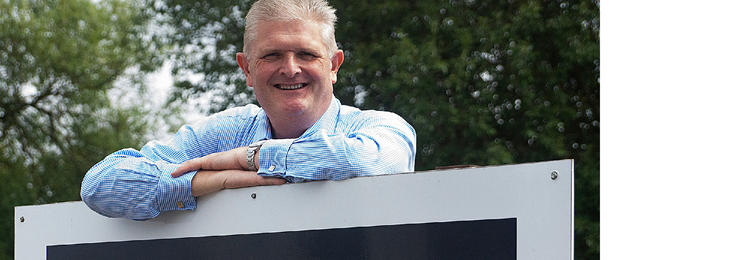
Behind the headlines on the Government’s 2030 car sales ban
Date: Thursday 28 January 2021
The UK Government announcing a ban on the sale of new petrol and diesel only car sales by 2030 is part of Boris Johnson’s 10-point plan to tackle climate change. While the feasibility of attaining this target is unclear, there is a wider debate within the automotive aftermarket when it comes to the next logical step - which is a fully electric future.
Putting aside the obvious challenges with charging infrastructure and the requirement for a massive step change in funding, the practicality of purely electric vehicles (EVs) for long journeys is likely to be an issue for a long time to come. Hence, most manufacturers are already moving to mild hybrid electric vehicles (MHEVs) and plug-in hybrid electrical vehicles (PHEVs) for a large part of their sales portfolios, while planning on selling EVs as second cars and where short journeys or city driving are the norm.
Away from the politics, today’s reality is that less than 1% of vehicles on UK roads are fully electric. Supporting infrastructure is patchy at best, with only 6% of local authorities installing charging points in residential areas. So, there is a lot of expensive catch-up to be done before EVs and some hybrids become the most practical choice for drivers.
A real concern from an environmental and sustainability perspective is securing clean power generation to maximise the environmental benefits of electric cars. With less than half of UK power generated from green sources in Q1 2020 there is a potential issue there. Achieving a fully electric future relies on huge investment and growth in UK infrastructure.
In the short term, EVs are not yet a practical choice for the majority of motorists. While premium EVs from the likes of Tesla offer extended ranges and relatively fast charging - external factors such as purchase cost, secure charging at home and cold weather performance can greatly reduce real-world practicality.
Range anxiety still exists for fully electric vehicles, exacerbated by poor charging infrastructure. Furthermore, despite fast charging points, the process of recharging still takes too long to be practical for daily journeys. There is also high depreciation and potentially high maintenance costs during extended ownership to contend with. What is clear is that EVs are a longer-term solution, waiting to mature with the introduction of new battery technologies that overcome these limitations. Customer confidence in EVs is far from won.
Drivers who have already invested in new diesel and petrol vehicles built to the latest EU Emissions standards are already polluting far, far less than 5 - 10 years ago. This includes the latest diesels requiring AdBlue - built to meet the strict EU Emissions Standard 6 (Euro 6). Consumers should feel positive about their purchase choice which is helping society to make environmental progress right now.
For now, highly efficient internal combustion (IC) engines and hybrid vehicles are the only option until EV technology, and the supporting infrastructure catches up. This means that the aftermarket will be required to support a large number of IC engine and hybrid vehicles for decades to come.
Businesses will continue to invest in new-to-range parts to support the full range of vehicles on the road for both consumers and the distribution market. A high failure rate of OEM exhaust systems, resulting from increased corrosion caused by intermittent IC engine use, means hybrids are in fact very good for aftermarket exhaust sales.
Where politics meets pragmatism
The diesel gate scandal and Euro emission standards have forced car makers to continually improve the efficiency and emissions of their models. The downsizing of engines, new fuel injection innovations, petrol particulate filters (PPFs) and the adoption of hybrid technology has served to drastically reduce the emissions of modern cars - even SUVs and sportscars.
Since diesel gate, the sales of diesel cars in the UK declined from 55% to 30% of the total. These sales have been replaced by petrol, EV and hybrids. The diesel emissions control system has also improved with the advent of Euro 6 standards. The incorporation of AdBlue technology into modern diesel vehicles massively reduces Nitrogen Oxides (NOx) emissions. For instance, Emissco, a business that is part of the Klarius Group of Companies, currently supplies Yara Air1 AdBlue® to retailers, garage forecourts, motor factors and repair shops for this purpose. This illustrates that supporting infrastructure is already in place for efficient hybrids and modern diesels, ensuring practicality for vehicle owners.
While on road emissions from EVs are undoubtedly less during operation, the resources required for the manufacture of new EVs are still under scrutiny. The automotive industry is currently battling big tech for access to the rare earth metals required to produce batteries for the widespread introduction of EVs. Car manufacturers are striving to find alternatives to rare earth metals, to ensure both the stability and affordability of the supply chain.
The production of the rest of an EV is still comparable to petrol or diesel vehicles in terms of environmental impact, which raises the question: can an EV future have any real-world benefit if emissions from developing countries, the oil & gas sector, industry, shipping and aviation are not also addressed as a priority?
While the announcement of a ban on the sale of new petrol and diesel only car sales by 2030 is good PR for the UK Government – coming as it does before the COP26 international climate summit that the UK will host this year - there is a long way to go before the majority of motorists see EVs as a practical addition to their lives. Especially while highly efficient IC technologies such as hybrids offer comparable benefits.
Petrol and diesel powered cars will be on the road for the foreseeable future, with businesses such as Klarius ready to support the replacement needs of all these vehicles with components that help maintain both emissions and performance standards long into the future.
